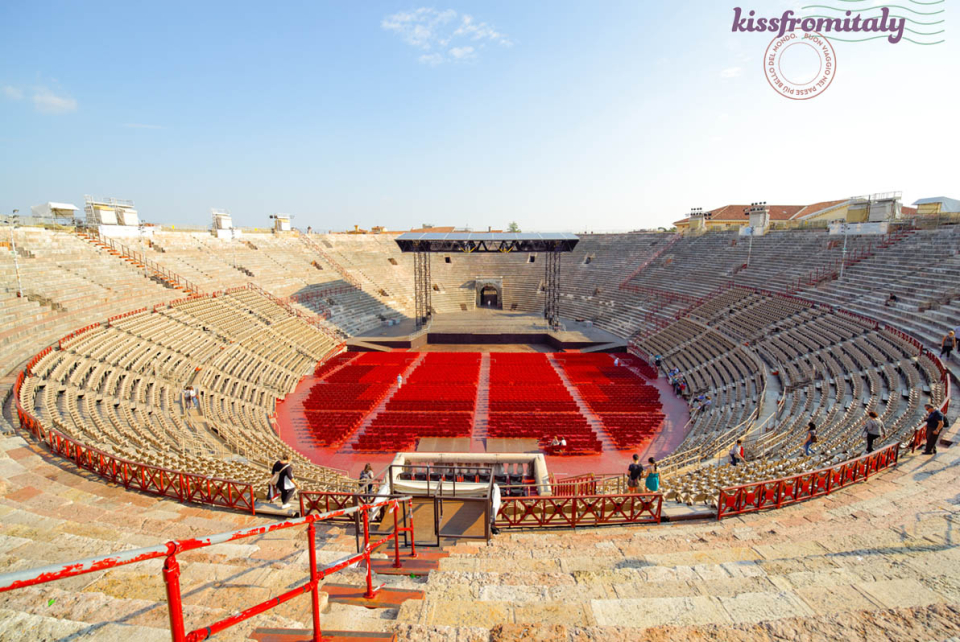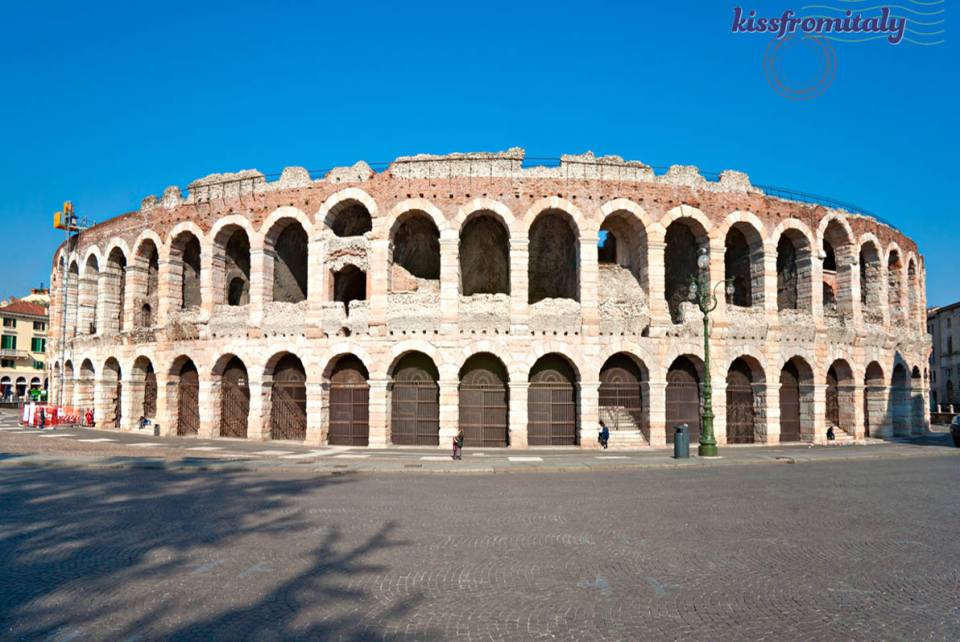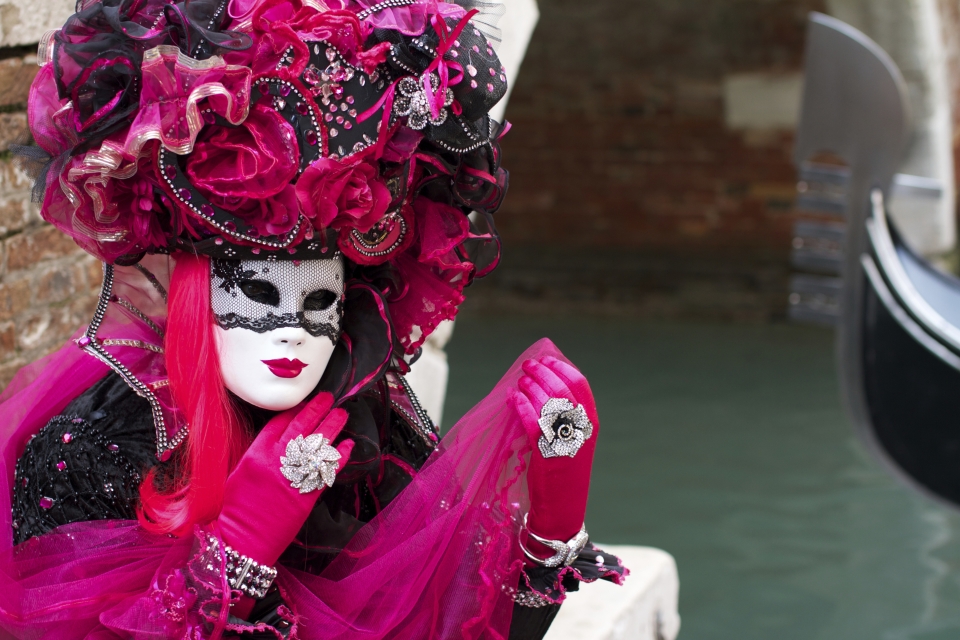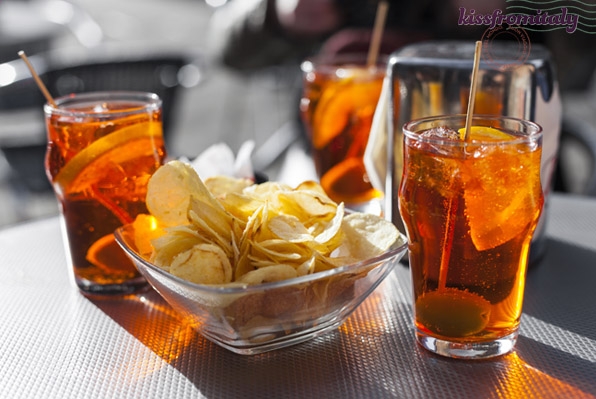
A world known opera festival takes place every year in the city of Romeo and Juliet
Verona is fairytale city and stronghold built upon centuries of artistry, passion, warfare, and mystery. The ancient town attracts opera lovers, couples on romantic getaways, historians, road-weary travellers and performance-attendees in abundance.
Shakespeare, Drama and Verona
Lovingly referred to as the backdrop for the tale of Shakespeare’s star-crossed lovers, Romeo and Juliet are thought to have lived in Verona, some say only in fiction, while others believe the Capulets and Montagues really did stroll it’s very streets. Juliet’s balcony is one of the most important and visited locations in Verona, and the programming of the Arena di Verona reflects the world’s love affair with the Bard and his epic romantic tale.
The relationship between opera and Shakespeare’s plays is indelible. From Othello to Macbeth to a Midsummer Night’s Dream, his mark on the history of opera, and the city of Verona is distinct. Romeo and Juliet have been celebrated in a number of operatic compositions throughout history. Romeo et Juliette, by Charles Gounod, and i Capuleti e i Montecchi, by Vincenzo Bellini are both gorgeous, unforgettable settings that are often featured at the Arena di Verona.
The city of Verona, with its romantic qualities and artistic history, was not always the stunning tourist destination we see today. Verona was founded in 49 BCE and has continued to grow as a stronghold and in wealth ever since. The city has had a long, robust history and was an important centre both strategically and politically, with a famously impenetrable defensive wall that could only be entered through it’s two gates, Porta Leoni or Porta Nuova, which later became Portone Borsari.
Gallery
The Opera Festival at the Arena
The now famous Arena was built during the reigns of Emperor Augustus, and Emperor Claudius as an arena for gladiator combat, games and spectacles. The amphitheatre took on its latest incarnation as a theatrical hall when it eventually became used for theatre performances during the Renaissance period. The Arena’s very important history with opera began much later, during the early 20th century on the occasion on the centenary of the birth of composer, Giuseppe Verdi.
The Opera Festival at the Arena di Verona was inaugurated when Tenor Giovanni Zenatello and theatre impresario Ottone Rovato took it upon themselves to launch an opera festival in celebration of Giuseppe Verdi. Tullio Serafin conducted the inaugural performance of Verdi’s masterpiece Aida, and his presence helped catapult the festival into the respected, well attended, and significant cultural festival it is today.
With the founding of the Opera Festival also came the founding of the Opera Festival Orchestra. The Orchestra boasts a wealth of talent and has hosted a number of notable conductors, such as Sergio Failoni, Riccardo Muti, Zubin Mehta, Rudolf Kempe, Daniel Oren, and Lorin Maazel, and the festival has been a venue for such distinguished opera singers as Maria Callas, Luciano Pavarotti, Beniamino Gigli, Renata Scotto, and Placido Domingo.
Useful information for attending the opera
The Festival runs annually from July until September, and all the performances take place outside under the star-lit sky, upon the same historic stone steps where people have sat to watch gladiators in combat, and Giuseppe Verdi be celebrated.
As technology and accommodations have improved, so has the experience at the Arena. You can easily reserve your spot on a chair, a cushion, or an unnumbered stone step, and don’t worry, you can virtually navigate the Arena’s seats and sightlines via their website. Prices range from 22 to 200 euros depending on the seat location and performance.
It is recommended that audience members without a numbered seat arrive early to secure their spot, but keep in mind that in the summer months the high temperatures, direct sunlight, and hard stone seating may make the wait a bit uncomfortable for some visitors.
In the case of rain the performance may be cancelled, so consult their website for further information regarding refunds and weather interruptions.
Dress appropriately and respectfully for the theatre while keeping in mind that there will likely be a noticeable drop in temperature once the sun sets. A jacket or cover-up can help you stay comfortable. Prepare for a long evening, the possibility of light rain or wind interfering with the performance. All of the rules and suggestions can be found on the Arena’s website.
Places in Italy for music lovers
If you are a music lover, you will like to know about Wagner's love for the town of Ravello on the Amalfi Coast. Or get to know the inspiring story of la Fenice Theater in Venice.







